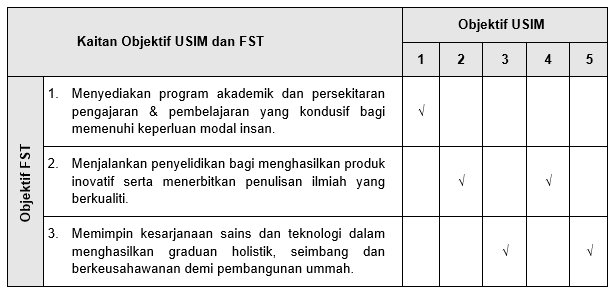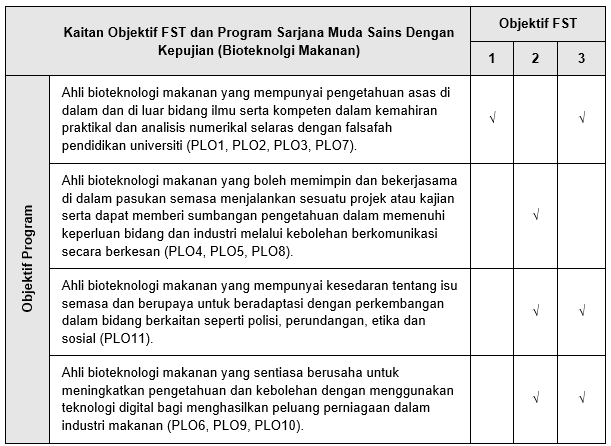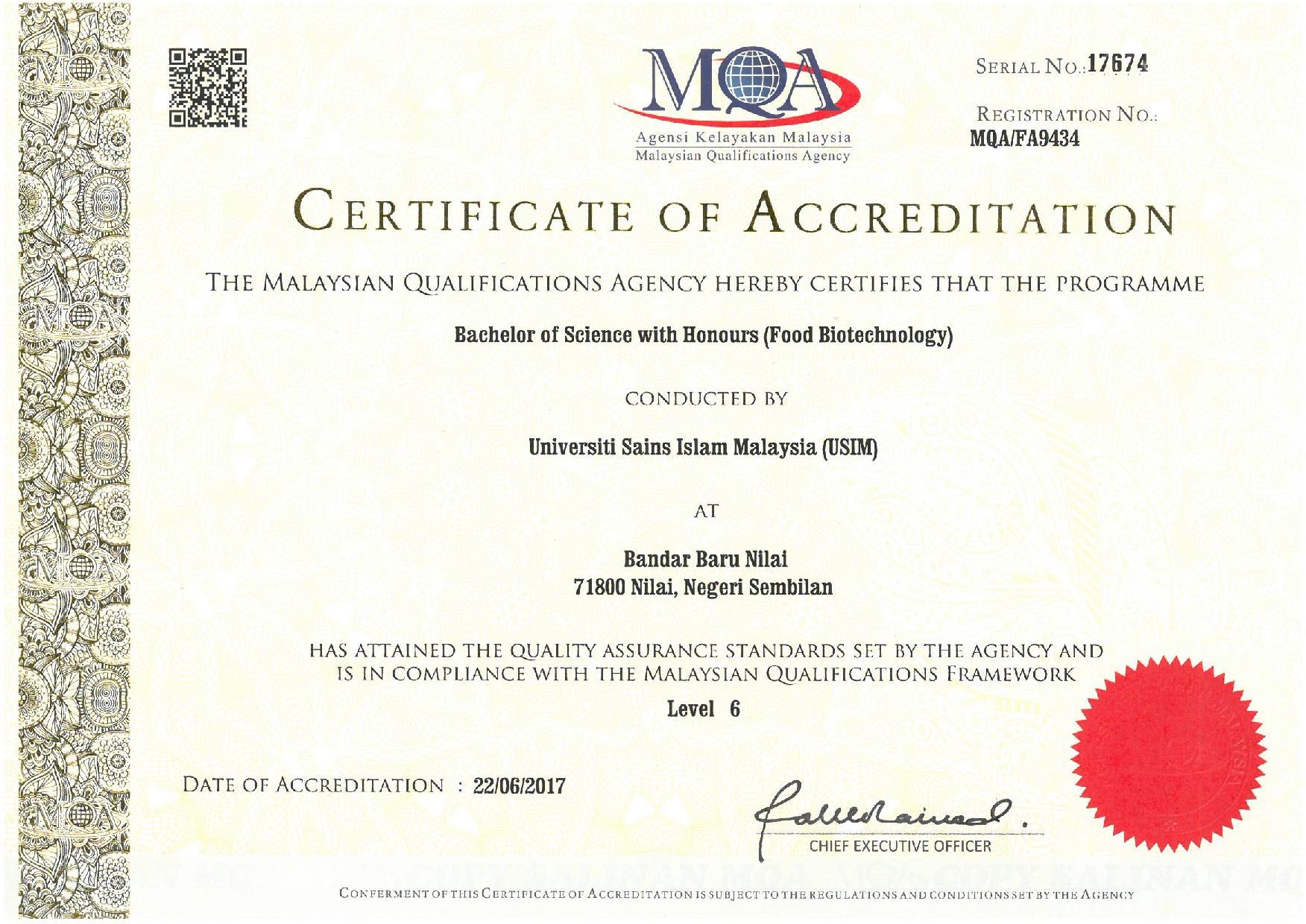Biotechnology has long been used in the manufacture and processing of food such as tapai, tempeh, bread, soy sauce, butter and vinegar through the fermentation process. Overall, biotechnology can be defined as the use of biological techniques in food processing and analysis. In this context, USIM is geared towards expertise in food biotechnology using the latest techniques such as DNA recombinant (rDNA) and novel bioprocess that has the potential to produce new products that have the criteria that meet the needs of consumers.
The main objective of the Food Biotechnology programme is to produce graduates who are knowledgeable, skilled and able to integrate the knowledge of biological science and food technology related to taking into account ethical and social responsibility aspects.
Therefore, the Bachelor of Science with Honors (Food Biotechnology) programme strives to achieve the following goals or objectives:
- PEO1: Produce food biotechnology experts who have a comprehensive understanding of food biotechnology as well as competent in extensive practical skills (LO1, LO2).
- PEO2: Producing food biotechnology members who can lead and engage in teamwork to solve problems and can contribute new knowledge within or outside the field of knowledge through effective communication skills (LO3, LO5, LO6).
- PEO3: Producing food biotechnologists who are aware of current issues and technological advances in food biotechnology taking into account commercial, ethical, social and legal issues (LO4).
- PEO4: Produce food biotechnology experts who are constantly working to enhance their knowledge and capabilities by leveraging ICT to generate business opportunities in the food industry (LO7, LO8).
At the end of the program, students will be able to:
- PO1: Demonstrated a comprehensive understanding of the Food Biotechnology field.
- PO2: Conducting experiments, as well as analyzing and interpreting data for research use in the Food Biotechnology field.
- PO3: Have social accountability as a learned person.
- PO4: Demonstrate understanding and awareness of the basic commercial, ethical, legal and social issues related to the Food Biotechnology field by integrating the knowledge of Naqli and Aqli.
- PO5: Communicate well and have a leadership attitude and work together in a team.
- PO6: Analyzes, demystifying and integrating knowledge and information critically in solving problems.
- PO7: Obtaining and disseminating scientific information related to the Food Biotechnology field as well as practicing lifelong learning concepts.
- PO8: Have entrepreneurial skills and be able to find opportunities and start a business plan.
Jadual Kaitan Objektif Universiti (USIM) dan Fakulti Sains Teknologi (FST)

Jadual Kaitan Objektif FST dan Program Sarjana Muda Sains Dengan Kepujian (Bioteknologi Makanan)

Objektif USIM
- Memartabatkan pendidikan Islam serta membawanya ke dalam arus perdana pendidikan negara.
- Membina kesepaduan antara teori dan amali dalam diri setiap siswazah yang dikeluarkan.
- Melahirkan ilmuan Islam yang berpendidikan sepadu, mampu memimpin masyarakat majmuk serta mempunyai potensi yang tinggi menerajui pembangunan negara.
- Meneroka dan mengembalikan tradisi keilmuan Islam yang unggul bersesuaian dengan persekitaran dan teknologi terkini.
- Membekalkan modal insan yang kukuh dengan penghayatan nilai Islam yang mampu berinteraksi dan berkomunikasi dengan berkesan dalam masyarakat.
Objektif Fakulti (FST)
- Menyediakan program akademik dan persekitaran pengajaran & pembelajaran yang kondusif bagi memenuhi keperluan modal insan.
- Menjalankan penyelidikan bagi menghasilkan produk inovatif serta menerbitkan penulisan ilmiah yang berkualiti.
- Memimpin kesarjanaan sains dan teknologi dalam menghasilkan graduan holistik, seimbang dan berkeusahawanan demi pembangunan ummah.
Graduates of this program can work in jobs involving the manufacturing and production of food, marketing, agriculture, pharmaceuticals, medicine, banking, business and commerce. They also have the option of becoming entrepreneurs or working in public sector such as research, education and enforcement institutions.
